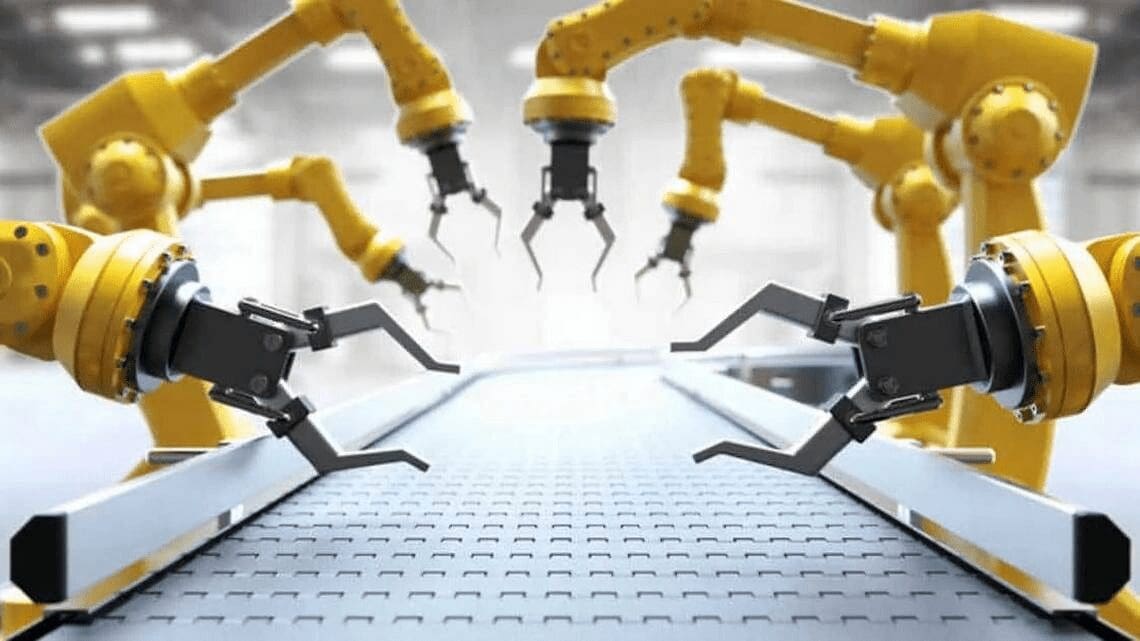While the COVID-19 pandemic will be remembered for many things, it may mark the official beginning of the age of automation.
The COVID-19 pandemic will be remembered for many things, but I think that one of the most important — aside from its tragic death toll — will be that the use of robots dramatically increased.
It may mark the official beginning of the age of automation.
New data from the Frankfurt, Germany-based International Federation of Robotics (IFR) show that U.S. purchases of industrial robots reached an all-time record in 2020.
Despite COVID-19’s economic downturn, sales of industrial robots increased by 7 percent last year in the United States, the Federation says.
That included a 72 percent rise in robots for hospitals and pharmacies, a 62 percent increase in robots for companies making plastics and rubber products and a 60 percent increase in robots for food and consumer firms. Even car companies increased their purchases of robots by 22 percent, the group says.
A separate study from the Gartner consulting firm says software sales for robots are expected to grow by 20 percent this year and are likely to keep growing at double-digit rates at least through 2024.
“The pandemic may mark a turning point in people’s attitudes toward robots,” IFR general secretary Susanne Bieller told me in a telephone interview from Germany. “Before the pandemic, part of the broad public saw robots as competitors. Now, many see them as helpers.”
When I wrote the book “The Robots are Coming” in 2019, I said that the main reasons robots will replace human at their jobs at an increasingly faster pace are that they are becoming much cheaper — and much smarter. Now, there are several other reasons.
First, the pandemic paralyzed factories worldwide, and companies will want to be better prepared for future pandemics.
Many manufacturing firms started using robots during the pandemic to replace absent workers and reduce the risk of infections. Robots don’t get infected, don’t need to sit six feet apart and work 24 hours a day. Also, they don’t unionize or ask for wage increases.
Second, the pandemic raised companies’ awareness of the fragility of their global supply chains.
In 2020, at the beginning of the pandemic, the United States and European countries faced shortages of surgical masks and other medical products made in China. Many U.S. and European firms concluded that they had been over-dependent on supplies from China, and some of them decided to start producing them at home with partially or fully automated factories.
The fear of new disruptions of global supply chains is not likely to go away because of, among other things, fears that lingering trade tensions between the United States and China could explode into a trade war and bring about new interruptions of trade.
Also, there is growing anxiety in the international trade community over natural disasters or accidents such as the recent shipping crisis in Egypt’s Suez Canal.
The canal, which transports up to 15 percent of the world’s trade, was blocked for nearly a week after the giant Ever Given cargo ship got stuck and blocked the passage of more than 300 cargo ships.
Third, the COVID-19 pandemic gave multinational companies a pause to rethink their long-term strategies, and many decided to shift part of their production to robots.
Before the pandemic, many companies were so busy that they had never taken a deep look into automation, industry analysts tell me.
The growing use of automation will accelerate the elimination of many of our jobs. If you are doing a job that is repetitive and predictable — whether you’re an auto worker or a supermarket cashier — there is a good chance that at least part of your job will be automated.
That’s why it’s more important than ever that, as a nation, we focus on re-skilling millions of workers and that we dramatically improve education standards. And as individuals, we must pursue life-long education, whether it’s to update our skills or to re-invent ourselves.
I’m not a pessimist — historically technology has always produced more jobs than it has eliminated. But the transition to an automated society already is tough on American workers and may become even more brutal.
In the post-COVID-19 world, robots will be everywhere, and we better prepare ourselves to survive and prosper among them.
_________________________________________________________________
To hear this article, please visit – https://www.miamiherald.com/news/local/news-columns-blogs/andres-oppenheimer/article250401751.html





















